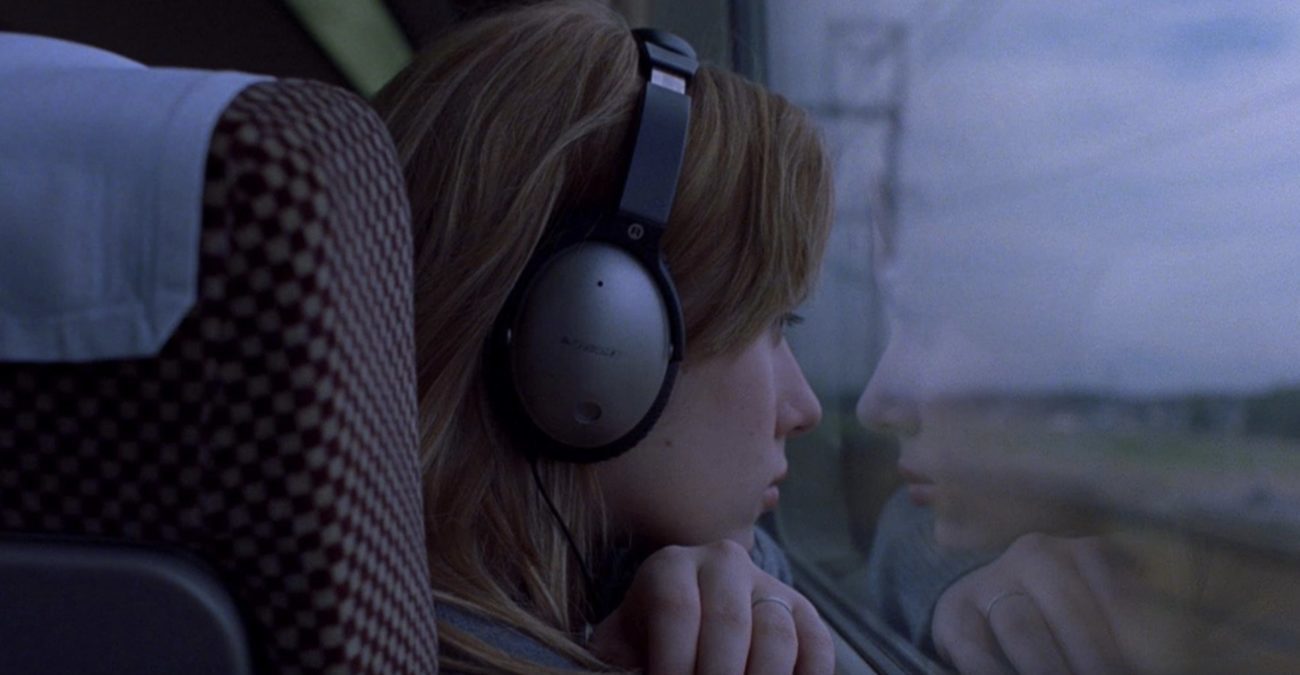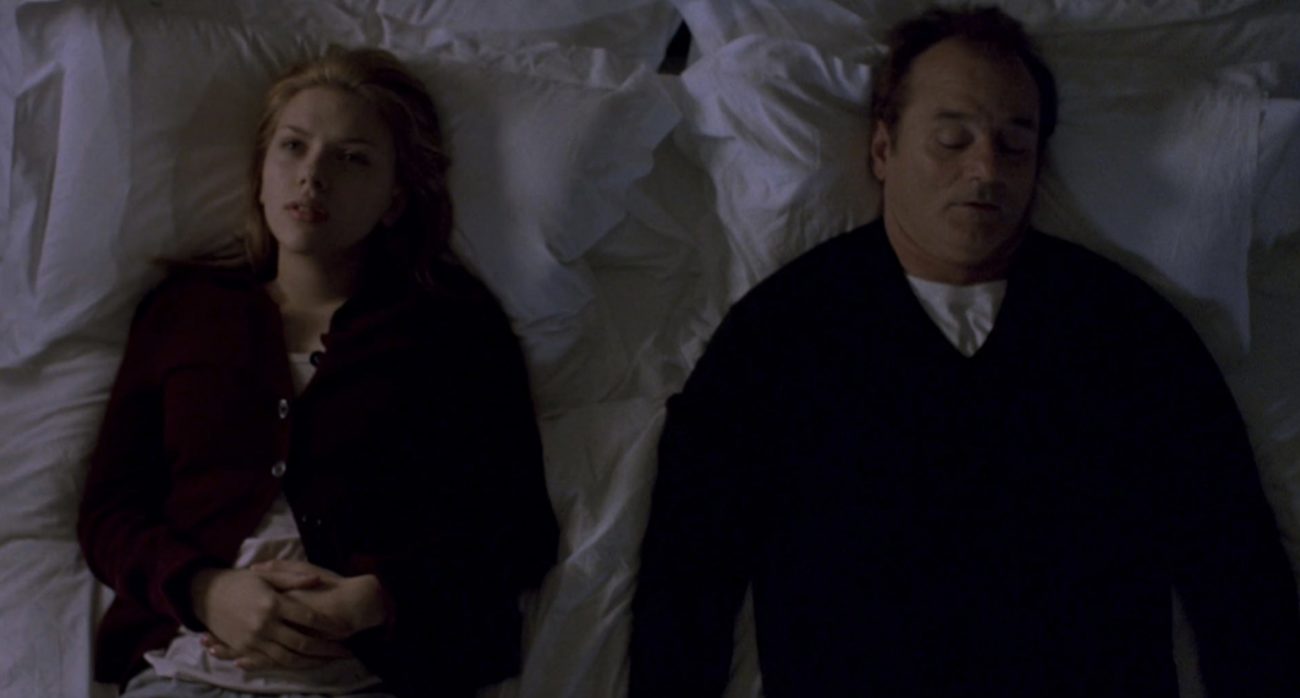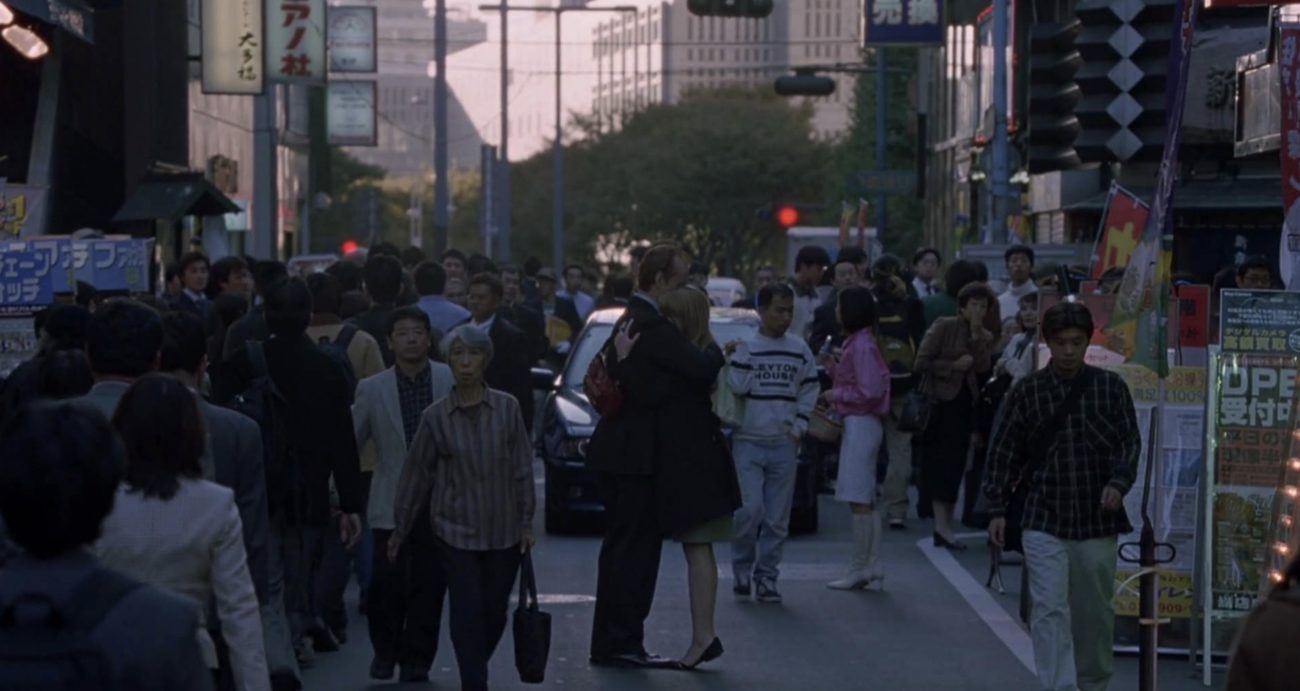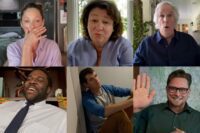Comfort movies are always there for us.
For me, the ultimate comfort movie is Sofia Coppola’s 2003, Academy Award-winning masterpiece, Lost In Translation, which I saw five times in theaters. I couldn’t get enough of it.
At that time in my life, I was 19 and starting my second year of college. I was still living at home, but that year marked the beginning of life on my own. Armed with my university bus pass, I took the bus everywhere I could and enjoyed myself when I wasn’t in class, studying, or doing homework. My favorite place to be was the Bijou theater.
It was there that I ended up seeing as many independent and revival films as I had the time and money for. And on September 26, 2003, I bought my ticket to see what would become one of my all-time favorite films.
Though nothing special to my eyes at the time, the trailer did its job. The film had two things going for it which made it a must-see for me:
1) I loved Coppola’s first film, The Virgin Suicides, so much so that I devoured the original Jeffrey Eugenides’ novel shortly after I saw it on DVD. The cinematography, the art direction, the costumes, and music; I was a fan of Coppola’s aesthetic.
2) Scarlett Johansson, who I’d known since Manny & Lo, but whom I fell in love with after Ghost World. Yes, I must admit, one of the reasons I went to see Lost In Translation was because she was in it.
I took my seat, and after the trailers and commercials ended, the lights fully dimmed. The Focus Features logo faded in and out. Then, the film began with that opening shot that I see every time I decided to play the vinyl for the film’s soundtrack. It’s a great start to the picture, and after the title, we meet the film’s primary protagonist Bob Harris.
Bill Murray deserved that Oscar for playing Bob, a character I’ve never really identified with or particularly liked. Regardless, out of all the “serious” characters Murray has played over the years, this might be his finest performance. He’s a famous has-been, really, who is a bit of an ass in the film’s first half.
I suppose Johansson’s Charlotte isn’t the nicest person in the world, either, but Coppola gives her a few scenes at the beginning that underline her sadness at being alone in a strange country, her husband being off at work, and just not knowing what to do with her post-college life. Bob, meanwhile, is in Japan to make millions doing ads for Suntory whisky and essentially hating himself for it.
I love this film, but I have never felt bad for Bob. And, I don’t have to. Coppola doesn’t demand that from me. Here, she presents two characters: one is an older male who was once a famous movie star, and the other is a young female, who just wants to know her place in life.

As I watched the film for the first time, I didn’t identify with Bob. How could I? His life was lightyears away from mine, especially at that time. As for Charlotte, well, I was still in college and had never had a serious relationship, let alone been married. Or female for that matter.
Still, there was something to be said about two individuals spending time with one another in a place where it seemed like there was no one else around. Tokyo is densely populated, but aside from a hell of a night out (my favorite sequence in the film), Bob and Charlotte might as well be on a desert island. It moved me to see two lonely people find one another and connect.
Outside of family, I had no friends when I saw Lost In Translation for the first time. Sometimes, movies can give you the opportunity to experience something you know you can’t get at the moment. I wished I could find a Bob or a Charlotte, who would not only listen to me but actually give a damn about my problems, even if they were relatively superficial. Alas, I did not get that in real life, but thanks to the power of movies, I was able to with Coppola’s film.
More than that, Lost In Translation became the ultimate comfort movie for me. As I said earlier, I ended up seeing it five times at the same theater. Months later, I bought the DVD the day it came out. I also bought the soundtrack on CD and vinyl, the former of which I’d listen to again and again, especially when it got easier for me to do so when I transfer it onto my first MP3 player.
Lost In Translation could possibly be the film I’ve watched the most times, which might sound crazy to some, but it’s true. Yes, I still love the aesthetic as well as Charlotte, but like I’ve been saying. It’s a comforting experience for me every time I see it. Originally, it was a way to experience the kind of connection shown in the film. It’s since become something a little different than that. More than anything, really, it’s the feeling of nostalgia I get from watching it.
I see this movie at least once a year now, and every time I do, I’m transported back in time to that 19-year-old, who sat in that movie theater, watching actual 35mm film projected onto a big screen; who fell ever harder for Scarlett Johansson; who was immersed in the evocative sound design, which mixed the streets of Tokyo with some really excellent music; who could finally afford to eat popcorn while watching something he loved; and who still had a long life ahead of him. I was 19 then. This September, Lost In Translation turns 19. How incredible.

For nearly half my life, I have loved a piece of cinema. Now, do not get me wrong. I do not watch this movie with rose-colored glasses. The nostalgia I have has less to do with that than it does with how Bob and Charlotte’s loneliness eased the loneliness I felt.
In college, it was comforting to watch a movie with characters like Bob and Charlotte connecting with one another. Nowadays, whenever I pop in my Blu-ray or press play on my digital copy, I get to experience that sense of loneliness I once felt. It’s not so much that I long for “the good old days,” or something like it. I don’t find myself re-watching the film to actively experience this. It just sort of happens.
In fact, when I re-watched Lost In Translation to prepare for this piece, I wasn’t in the mood for it, but I knew it’d bring me comfort, even if I hadn’t seen it in over a year (a record for me). I started it, enjoyed it well enough, and a few minutes into it, I was smiling to myself. This movie is like an old friend. I don’t have much of a dialogue with it necessarily, but I love the time I spend with it, each and every time.
This film is me at 19. In that sense, I suppose it’s kind of a time machine. Funnily enough, though, just how much has changed? Honestly, not much at all, except that I don’t feel the exact same attraction to Scarlett Johansson as I once did. (We’ve both grown up since then.) I’m older, wiser, have a job, and I suppose I still feel a bit lonely every now and then.
I once was Charlotte, lying in that bed and telling a non-existent version of Bob:
I just don’t know what I’m supposed to be.
I would cry at the frightening prospect that perhaps I was dead inside, unable to feel anything at the sight of something as beautiful as seeing monks chanting inside a shrine. I would go around my city, taking in the sights and doing things to pass the time. I, too, wanted to be a writer and very much hated what I wrote.
All that said, now that I’m much older, am I closer to being Bob now? Not really. I still haven’t figured everything out. He tells Charlotte this after she confides in him her fear of not yet knowing her place in the world:
The more you know who you are, and what you want, the less you let things upset you.
That’s not me. Not yet at least. Perhaps I’ll get there. One day. At this point in my life, I’m sort of halfway between Charlotte’s age and Bob’s age. I’m still in transition, stuck in extended adolescence. Is this why I find such comfort in revisiting 19-year-old me? Perhaps.
A big part of my love for this film is nostalgia, yes, but that’s not to say that Lost In Translation is not a great film. It is. And plenty has been written about this movie, as well as Sofia Coppola, in that regard. Coppola won the Academy Award for Original Screenplay for this film, and the movie itself landed on so many critics’ year-end lists. On the website They Shoot Films, Don’t They?’s aggregated list of the 1000 greatest films ever made, this movie sits at 367.

It belongs higher, in my opinion. Coppola’s ode to lonely people connecting on a metaphorical deserted island always manages to move me, and it ultimately is more than just this writer remembering what it was like to be young. It’s about the very real feeling that occurs every now and then, usually when I’m least expecting it. Every so often, I realize I’m going to die.
I’m going to die because that’s what life does. It ends. Before that time comes, though, I hope that I will have made the kind of connection Bob and Charlotte make. They are changed people by the time The Jesus and Mary Chain’s “Just Like Honey” kicks in (one of the finest needle drops in all of cinema). I never had that when I was young, and I still haven’t.
However, through the power of great cinema, I am not only able to time travel, but I am also able to experience what it is like to find someone who actually gets you. It’s as Roger Ebert once wrote:
The movies are like a machine that generates empathy.
I’m not a recent college graduate with a degree in Philosophy, and I was never a movie star. But, watching this movie, it’s like I can be those things. It’s all-immersive for me. When Bob whispers into Charlotte’s ear in that infamous moment, in the end, I imagine he’s saying something to me. Maybe he’s telling me:
You’re not helpless.
Well, whatever it is, I know it’s comforting.



